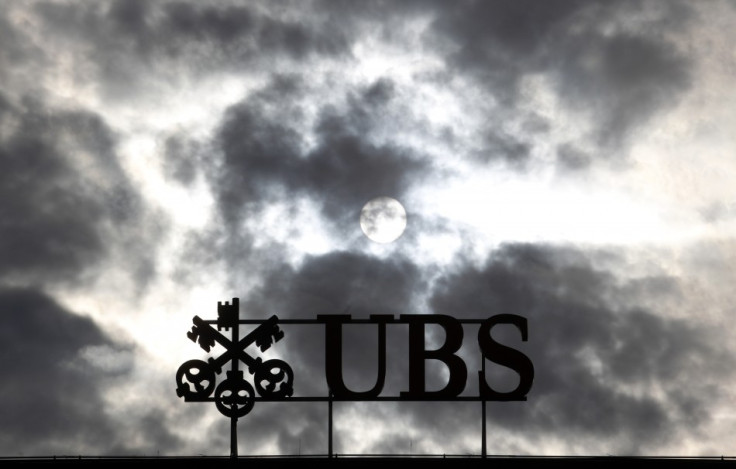UBS Turns a Corner: Future Looks Bright for Swiss Bank

At first glance, UBS posting a 54 percent drop in first quarter net profit should be enough to send a dire message. However, looking behind the headline number, which was blamed on an accounting loss on its own debt, there are significant strengths in other divisions, such as the substantial double digit growth in global wealth management, an astonishing rise in its Americas unit earnings and strong funding positions, which is enough to make the stock stay firmly in positive territory today.
UBS is continuing to shed assets and pare down the size and strength of its investment banking unit in favour of a focus on global wealth management and investors couldn't be happier.
Back in November 2011 at a UBS Investor Day, the new appointed CEO of the Swiss bank, Sergio Ermotti announced that it would do what many analysts had been saying for some time: pare down its investment banking operations and concentrate on wealth management.
"UBS is acting from a position of strength and we are adapting our strategy to deliver more attractive returns to shareholders and to reflect economic and regulatory change," said Ermotti in November last year. "We have chosen to substantially reduce the risk profile of the bank by exiting and downsizing businesses which are not value added to our client franchise or deliver unattractive risk-adjusted returns. UBS strategy is centred on its wealth management businesses and it will strengthen its leadership position in the most attractive markets."
It's a good job that Ermotti carved the strategy in stone because after a terrible year of investment banking fee results, which showed that the Swiss bank's fees drop 15 percent in 2011, according to data company Thomson Reuter's Global Investment Banking Review 2011 report. Furthermore, its reputation has been dogged for years with charges, fines and criticisms over its risk management record, and an alleged rogue trading scandal to boot, so it was about time for a change in strategy.
UBS' reputation in risk management controls has been questioned over the years and has caused fluctuations in investor confidence, which stem back to before the alleged rogue trading scandal of September 2011, which made UBS lose around $2.3bn in "un-authorised trades."
This wasn't the bank's first experience with complicance failures.
In April 2008, UBS admitted to failings in its risk management structure, in a 50-page report requested by the Swiss Federal Banking Commission, following big losses across many divisions in 2007 and the following year. The fallout resulted in a substantial decline in wealth management clients, with the net outflows increasing quarter after quarter as investor confidence waned.
Fast-forward to November 2009 and the UK regulator, the Financial Services Authority (FSA) fined UBS £8mn for "systems and controls failures that enabled employees to carry out unauthorised transactions involving customer money on at least 39 accounts, which took place between January 2006 and December 2007."
At the time, the £8m fine was the third largest fine the FSA had ever imposed. The FSA said in a statement that UBS agreed to settle at an early stage of the FSA's investigation meaning it qualified for a 20 percent discount. Without the discount, the FSA would have imposed a financial penalty of £10m.
"These employees were able to take advantage of UBS' inadequate systems and controls, giving them free rein to make unauthorised trades with customer money that they were then able to conceal," said Margaret Cole, FSA director of enforcement and financial crime. "It is imperative, particularly in these more challenging financial conditions, that firms have suitable systems and controls in place to keep their houses in order. Where firms fall short in this regard, the consequences will be severe."
However, two years on and Kweku Adoboli, a now ex-employee from UBS, is facing charges for the largest unauthorised trading loss in British history, which was first noted in September 2011.
But it seems UBS has reached a turning point.
The last two quarters are clearly helping quell any investor concerns, after the group posted stellar results in its wealth management business as it continues to cut down its investment banking divisions.
UBS' wealth management businesses reported net new money of 10.9bn Swiss francs in the first quarter this year, while net new money for 2011 stood at 35.6bn Swiss francs.
The Swiss group's wealth management division also recorded a 24 percent rise in adjusted pre-tax profit on improved margins and continued cost control, while its Americas unit delivered a record rise of 34 percent in quarterly pre-tax profit, compared to the last quarter. The same unit also revealed an 87 percent rise in cost/income and a doubling of net new money to $4.6bn.
Capital, liquidity and funding positions remain strong for the group, under Basel III compliance levels after the Basel 2.5 tier 1 ratio rose to 18.7 percent from 15.9 percent.
Furthermore, UBS revealed it has also reduced its investment bank risk exposure as it "actively reduced Value-at-risk (VaR) and risk-weighted-assets (RWA) in turbulent markets."
Investors are clearly delighted.
The UBS share price has remained firmly in positive territory and continues to lead the Stoxx Europe 600 index. As of 0915 GMT, the UBS share price was at 11.99 Swiss francs; a rise of nearly 6 percent the day before.
However, this is still below the 13.07 percent the UBS share price registered on February 7 this year, when the Swiss bank posted its full year results for 2011.
But after two quarters of pleasing results, it looks like UBS has finally turned a corner.
© Copyright IBTimes 2025. All rights reserved.






















